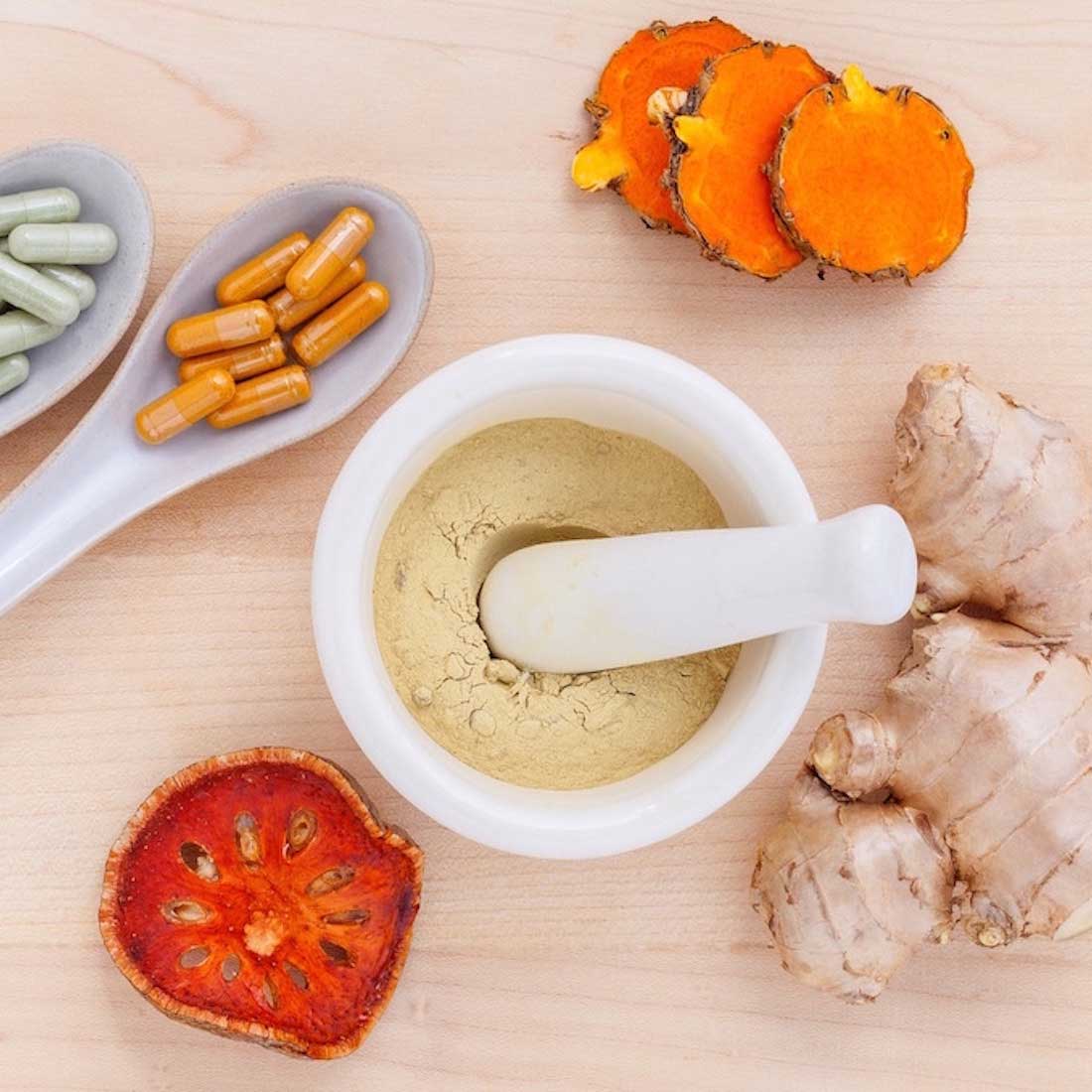If you’re thinking of adding turmeric to your diet, please try it. Turmeric (Curcuma longa) has two dozen anti-inflammatory qualities, is effective in treating pain, and the risk of turmeric supplement side effects is low. The spice is commonly used in Ayurvedic medicine and may prevent cancer, reduce the risk of pain, and treat arthritis.
Possible Turmeric Supplement Side Effects
If you’re consuming turmeric through your diet, you’re fine. It’s difficult to eat too much turmeric through food.
Turmeric does offer many benefits, but keep in mind the recommendations laid out by the National Library of Medicine 1:
If you are on blood-thinning medication: Turmeric makes it harder for platelets to clump together. That’s usually a good thing as it may prevent blood clots in the arteries. Eating normal dietary amounts is likely fine, but avoid turmeric supplements.
If you are receiving chemotherapy: Large amounts of turmeric may affect your chemotherapy treatments. Eating normal dietary amounts is likely fine, but steer clear of turmeric supplements.
If you are pregnant: Eating curries and other foods with turmeric is likely safe. But again, avoid turmeric supplements.
Recommended Dosage of Turmeric
If you’re taking turmeric in supplement form, I would take no more than 500mg of turmeric twice a day 2. These are dosage levels that have been studied in a laboratory setting and found to be safe.
Although supplements can be useful, I recommend increasing your turmeric intake through your diet instead of supplements. Make some curry and add turmeric. The oil and black pepper ingredients in your curry also increases the bioavailability – your body’s absorption – of turmeric.
Health Benefits of Turmeric
There are lots of reasons to eat more turmeric. These are just a few of many:
Fight Alzheimer’s
Let’s get into some details of Alzheimer’s.
Alzheimer’s is caused by compounds called ‘amyloid β forms aggregates’ (oligomers). The problem with these compounds is that they can accumulate in the brain and form ‘amyloid plaques’. Here’s why curcumin is promising for people with Alzheimer’s: some studies show curcumin can prevent the formation3 of these plaque deposits.
Here’s what we’re not sure about. We’re not sure if the curcumin can get to the area in your body where it’s needed. Your brain is protected by something known as the blood brain barrier4. Think of it as a skin that wraps around your brain and protects it harmful substances that made it into your blood. We’re not sure if curcumin from food can make it across the blood brain barrier and get to the brain.
Do I still recommend turmeric? Yes. Firstly, we know turmeric is safe for you and has very little side effects, even for patients with Alzheimer’s. More importantly, we also know that turmeric is a powerful anti-inflammatory.
Fight inflammation
Turmeric is a powerful anti-inflammatory. The active ingredient in turmeric, curcumin, reduces the levels of two enzymes in your body that cause inflammation. Cucurmin is also an antioxidant, which means that it gives your immune system a power boost against high-energy particles that damage your cells.
Reduce your risk of heart disease
Cucurmin may prevent plaque buildup in your arteries. Plaque is a leading factor of heart attacks and strokes. It may also prevent blood clots in your arteries.
Chew on this
Changing your diet is the best way to improve your health. Have some curry with turmeric tonight. Check out our guide to healthy meal planning. Eat well and live well.
What have you tried turmeric in? Tell us in the comments!




